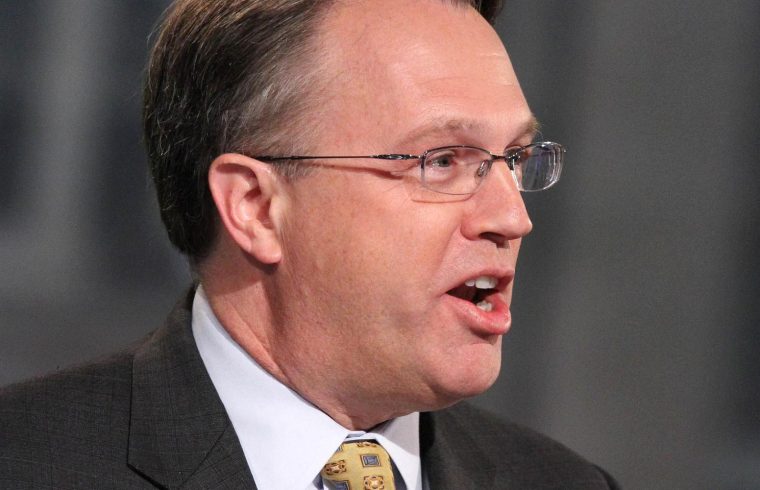
San Francisco Federal Reserve Bank President John C. Williams said on Monday in Singapore that the U.S. economy was performing well and didn’t need a fiscal package to get on track.
“It’s not like we need fiscal policy in the short run to help the economy get back on track. We’re actually in a good place in terms of where the economy is even without thinking about fiscal stimulus,” Williams said on the sidelines of the Symposium on Asian Banking and Finance.
U.S. gross domestic product (GDP) growth rose 1.2 percent annualized in the first quarter, according to updated data, faster than the 0.7 percent preliminary estimate released last month. The U.S. unemployment rate fell to 4.4 percent in April.
Noting the Fed’s dual mandate, or twin goals, of maximum employment and price stability, the text of his speech at the symposium read, “the U.S. economy is about as close to the Fed’s dual mandate goals as we’ve ever been.”
But in his remarks prior to the speech, he also pointed to uncertainty over what form the Trump administration’s fiscal policies might take.
“There’s a lot of uncertainty about fiscal policy. I’m not sure what’s going to happen in terms of tax policy, spending policy, healthcare reform, trade immigration, all those policies. There’s not a lot of clarity around that,” he said, noting the Fed was studying various scenarios.
Williams, who is currently a non-voting member of the Federal Open Market Committee, pointed to four big policies with the potential for dramatic impact on the U.S. economic outlook, both in the short and long term: Tax reforms, health care, immigration and trade, including the renegotiation of the North American Free Trade Agreement (Nafta).
“Right now, looking at what are the more likely scenarios, I don’t see any of them having a big effect on growth in the next few years. Maybe there are some scenarios that are slightly positive, and what I mean by slightly, pushing up U.S. GDP growth by a tenth of a percent or a couple of tenths of a percent,” he said.
He added that he saw “a little net positive due to the tax cuts,” but he had some words of caution.
“I think a lot of people, maybe stock market investors and others, have counted up all the positives and kind of ignored how do you pay for that and the negatives. I think there may be some excessive optimism in the U.S. around how this will affect the economy,” he said.
Williams also pointed to potentially negative scenarios, particularly if spending were to be cut dramatically in the short term.
He said that if the proposed changes to the Affordable Care Act were passed, “that could have a short-run significant negative impact in terms of spending.”
Williams reiterated that he still believed a total of three rate hikes by the central bank this year, including the one in March, were appropriate.
“Unemployment is at 4 percent. We’re adding 180,000 jobs a month, That’s roughly twice as much as the U.S. economy needs in a sustainable way. My worry there is if we keep that going, in another couple of years, unemployment will go down in the 3 percents, below 4 percent, and inflationary pressures will build,” he said.
Even with interest-rate increases and normalization of the balance sheet, Williams said he expected economic growth of slightly below 2 percent.
On a longer term view, Williams pointed to other challenges for the U.S. economy.
“I personally view that the biggest challenges the U.S. faces are really longer run challenges, not about next month, next year. They’re about the fact that productivity growth is very slow, we have a shortfall of infrastructure in the U.S.,” he said.
“We have a lot of longer term challenges that really revolve around needing more investments in education, job training, infrastructure, research and development, all the things that propel an economy over the longer term.”
Williams also said he was concerned about the move away from globalization.
“Globalization and trade have been hugely beneficial to people around the planet,” he said. “I agree that we need to figure out ways to create more modern approaches to that, but what worries me is if countries around the world pull back from integration and trade, I think that would be pretty negative, not only for the global economy, but for the U.S. economy.”
On China, Williams said he wasn’t worried about a hard-landing for the mainland’s economy, at least for the next few years as policymakers were unlikely to allow sharp moves amid a leadership decision this year.
But he added that he was more concerned about the five-year view for China, noting that the short-term economic fixes were creating a high debt load.






